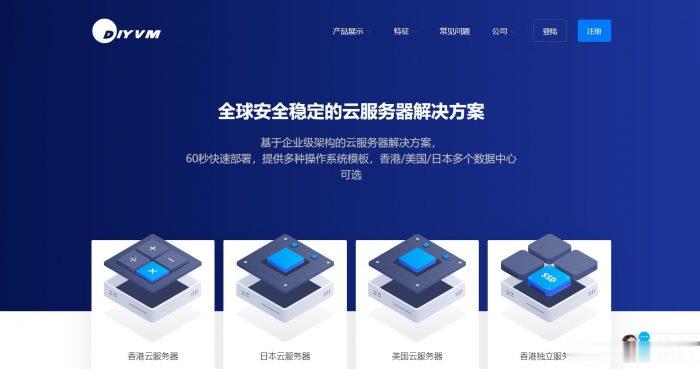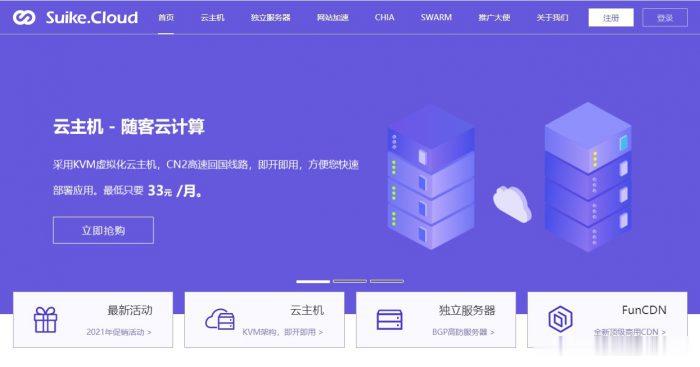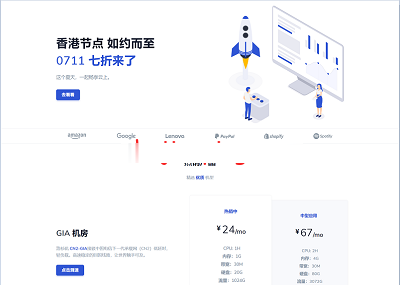efficient因特网是什么
因特网是什么 时间:2021-04-18 阅读:()
Internetpeering:WhatdoesitmeanfordevelopingcountriesTimKelly--ITUTheinternationaltelecommunicationsregimehastraditionallybeencharacterisedbybilateral,correspondentrelationsbetweencountries,operatingunderwhatisknownastheaccountingratesystem.
Thissystem,rootedintheprincipleofnationalsovereignty,hasoperatedinoneformoranotherformorethanonehundredyearsandisbasedaninternationaltreaty,theInternationalTelecommunicationRegulations(ITR),lastrevisedin1988.
Thissystemisbasedonrevenue-sharingratherthancost-orientationandisoftenblamedforkeepingthepriceofinternationaltelephonecallsattoohighalevel.
Whiletheaccountingratesystemisremarkableforitslongevity,itisnowwidelyperceivedtobeindangerofcollapse,underpressurefromcompetitivemarketentry,technologicalchangeandby-pass.
TheInternethasevolvedaverydifferentsystemofrelationsbetweennetworkswhichmightbroadlybedescribedaspeeringarrangements.
Trafficisexchangedbetweennetworksinamannerwhichisindependentofitsultimateoriginanddestination.
Whilepeeringbeganasaconvenientandnon-for-profitarrangementbetweenacademicnetworks,ithassubsequentlybecomemorecommercialwiththeprogressiveprivatisationoftheInternetbackbone.
Peeringarrangementsarenotcurrentlyregulatedandarenotsubjecttoanyinternationaltreaty.
ItiswidelybelievedthatnetworksrunningIPtrafficbecomethemajorbearerforbothvoiceanddatatrafficinthefuture.
Ifso,doesthismeanthatpeeringarrangementswillsteadilyreplacetheaccountingratesystemonthepublicnetworkInparticular,whataretheimplicationsofsuchashiftfordevelopingcountries,whoareamongthemajorbeneficiariesofpaymentsmadeundertheexistingregimeWillthetransitionfromahalf-circuittoawhole-circuitregimemeanthatdevelopingcountriesenduppaying,ratherthanreceivingmoney,toterminatetrafficWhatpotentialrolecouldinternationalorganisations,suchastheITU,playWhyistheInternetsocheapProbablythesinglemostimportantfactorinexplainingthephenomenalsuccessoftheInternetisthatitischeap,oratleastispopularlyperceivedtobecheap.
Ofcourse,whenoneremembersthatpossessionofaPersonalComputer,appropriatesoftware,amodemandatelephonelineareallfairlyessentialprerequisitesforInternetaccess,thenmaybeitisnotsocheap,especiallyfordevelopingcountrycitizens.
Andwhenoneaddstothattheconstantpressurefromthecomputerindustrytoupgradetothelatestmodels,touseahigherbandwidthconnection,ortostartpayingforinformationthatwaspreviouslyavailableforfree,thenInternetbeginstolookdistinctlylikealuxuryitem.
TheperceptionthatInternetischeapreallyrelatestotheusagecostsratherthanthefixedcosts.
Formanyusers,theirinitialcontactwiththeInternetwouldbeatschooloruniversity,orperhapsatwork,wherethefixedcostsofinstallationandmaintenancearelargelyhiddentothem.
Thustheyareawareprimarilyofthe"saving"theyaremaking,say,byplacingatelephonecallovertheInternetratherthanoverafixedlinenetwork,ratherthanthetotalpictureofwhatthatcallcosts.
Certainly,therateswhichareavailableforanInternettelephonycallareconsiderablycheaperthanforanequivalenttelephonycall,especiallywhenthecallcrossesinternationalborders.
WhyshouldperminuteusagecostsforinternationaltelephonecallsontheInternetbesomuchlowerthanonthepublicswitchedtelephonenetwork(PSTN)Afterall,theybothusethesamecablesandthesamecopper:ThestraightforwardansweristhattheInternetusestheavailablecapacityinamoretechnicallyefficientmanner.
AtypicalcallplacedoverthePSTNwouldoccupyaduplex(two-way)circuitfortheentiredurationofthecall,includingthepausesbetweenwordsorbetweenreplies.
AcallplacedovertheInternethowevercouldtheoreticallyberoutedoverseveraldifferentcircuits,eachofwhichwouldbeoccupiedforafewthousandthsofasecondatatime,aspacketsareroutedacrossthenetworktobereassembledatthedistantend.
ThePSTNisoptimisedforvoicetransmission,sampledin8bitbytes,8'000timesasecond,foranaggregaterateof64kbit/s.
TheInternet,bycontrast,isdesignedtobeplatformindependent,collectingandterminatingtrafficuptothemaximumspeedthattheweakestlinkonthenetworkwillbear.
ThequalityoftheInternetconnectionmaybelower,butit'sefficiencywillinvariablybehigher.
AfurtherelementisthegreatercapacityutilisationachievedforInternetuse.
TheInternetisengineeredtomeetaverageloads,andthetypicalutilisationoveranextendedtimeperiodisaround60-70percent.
Bycontrast,thePublicSwitchedTelephoneNetworkisengineeredtomeetthebusinesspeakhourandthusutilisationistypicallybelow20percent.
Athirdfactoriseconomiesofscale.
IfyoucoulddrawthePSTN,itwouldlooklikeadensemeshofconnectionsinthatmostofthenodesinthenetworkareconnectedtoeveryothernodeor,iftheylackadirectconnection,couldbeconnectedbyjustoneintermediary.
Bycontrast,apictureoftheInternetwouldlookmuchmorelikeanairlineroutemapinwhichasmallnumberofhubsareconnectedtoeachotherandareeachsurroundedbyastar-shapednetworkoflocalpeeringarrangements.
Atypicalinternationalvoicetelephonycallwouldpassbetweenthehandsortwoorperhapsthreecarriers;atypicalInternettelephonycallwouldpassthroughanaverageof15hopsandmultipledifferentcarriers.
Thelogicoftheroutingisunrelatedtogeographyandinsteadrelatedtothevolumeoftrafficflows.
Trafficgravitatestothickroutes,thatisthosecableswhichhavethehighest(available)capacity.
TheseareinvariablytheoneswithintheUnitedStates,orwhichlinktheUnitedStatestoothercountries.
Whattheseexamplesillustrateisthatthe"cheapness"oftheInternetdependsonone'sviewpoint.
Internetappearcheapifoneconsidersusagecostsonlyratherthanthecompletepictureofusageandfixedcharges.
Similarly,Internetappearscheapwhencomparedtocomparableinternationalcallsbutlesssowhencomparedtolocalcalls.
TheInternetisalsocheapertheclosertheuseristoahighbandwidthpipe.
ThatmeansthatittendstobemoreexpensiveforusersoutsidetheUnitedStates.
WhyareinternationaltelephonecallssoexpensiveThecorollarytothequestion"WhyistheInternetsocheap"is"Whyisthetelephonenetworksoexpensive",particularlyforinternationalcalls.
Typically,auserin,say,sub-SaharanAfrica,wouldpaymanytimesmoreforathreeminuteinternationaltelephonecalltotheUnitedStatesthantheywouldtobeloggedonforanhourorsotoawebsitelocatedintheUnitedStates.
Andyet,thefacilitiesusedinthetwocallswouldbesimilar.
Indeed,thetwomessageswouldprobablypassundertheAtlanticonthesamecable,albeitondifferentfibrestrands,withthetelephonemessagebringingperhapsahundredtimesmorerevenuetothecarriersinvolvedthanthewebbrowsingsession.
Thesimple,thoughnotentirelyconvincinganswertothequestionisthatinternationaltelephonecallsareexpensivebecausetheyhavealwaysbeenexpensive.
Originally,internationaltelephonecallswerepricedasaluxurycommoditybecausethebandwidththatconveyedthem—initiallyHFradio,latersatellitesandunderseacables—wasinshortsupply.
Themostsignificantpricereductionsininternationalservicewereachievedinthe1960sand1970s.
Sincetheearly1980sthepricehasbeenrelativelystable(albeitdecreasingrelativetoinflation).
Ontheotherhand,thecostsofterminatingthecall,asshownbythesettlementrate,havefallensubstantiallyonalmostallroutes.
Since1995,theaveragerateofreductioninsettlementratesgloballyhasbeenoftheorderof12percentperyear,andin1998thereductionislikelytoexceed20percent.
Thishasbeenmuchfasterthantherateofreductioninprices,hencecreatingscopeforserviceswhicharbitragethedifferencebetweenthepriceoforiginatingacallandterminatingit,suchascall-back.
Furthermore,theunderlyinginfrastructurecostsfortransmissionofinternationalcallshavebeenfallingevenfaster.
Onthetrans-Atlanticroute,forinstance,thecostoftheAC-1cable,completedin1998,isjustoverUS$300per64kbit/scircuitperyear,whereastheTAT-8cable,completedadecadeearlier,costmorethanUS$10'000percircuitperyear.
Tothispriceerosioncanbeaddedthefactthatthepossibilitiesfordatacompressionhavealsoincreasedsignificantlyduringthatperiod.
Theoverallconclusionthereforemustbethatthecostreductionsbeingachievedthroughtechnologicalchangeandsettlementratereformarenotbeingpassedoninfulltotelephonyconsumers.
Itisthusnotsurprisingthatthereisconsiderablyinterest,indevelopingcountriesaswellasdevelopedones,inthepotentialforInternetTelephony,tobringlowerpricesforconsumers.
Settlementsandpeering:What'sthedifferenceFordevelopingcountries,theimplicationsofashiftawayfromsettlementstowardsapeeringregimearemixed.
Ontheonehand,itcouldmeanareductioninpriceforoutgoinginternationalcallsifthepromiseofInternetTelephonyisembraced.
Ontheotherhand,itcouldmeanthatinpaymentsreceivedforterminatinginternationalcallsaresubstantiallyreduced.
DevelopingcountriesareestimatedtogainsomeUS$7-10billionperyearinnetsettlements,muchofwhichcomesfromtheUnitedStates.
Asthesepaymentsaremadeintheformofregularmonthlycheques,cashedinhardcurrency,theyformaninvaluablesupportforadevelopingcountry'sbalanceofpayments,aswellastheirtelecommunicationinfrastructureinvestmentprogramme.
Anincominginternationaltelephoneorfaxcallwouldbringwithitasettlementpaymentofuptoacoupleofdollarsperminute.
Bycontrast,anincomingInternetcallwhichispatchedtothePSTNmightbringonlysufficientrevenuetocoverthecostofalocalcall,whichwouldamount,atmost,toafewUScentsperminute.
Indeed,inthecasewherethedevelopingcountryInternetServiceProvider(ISP)paysforthewholecircuitwhichconnectsittotheInternetbackbonenetwork,sayintheUnitedStates,thenitmayfindthatitactuallylosesmoneyonthetransactionaswellasthelostsettlementpayment.
ThedifferencebetweenthetreatmentofanincomingPSTNcallandanInternetTelephonycallisillustratedinFigure1.
Intheleftchart,thedevelopedcountrypublictelecommunicationoperator(PTOA)whichdeliversaPSTNcalltothedevelopingcountry(PTOB),alsomakesasettlementpayment,inlinewithitscorrespondentrelationshipwithPTOB.
Thiswouldnormallybehalfoftheaccountingratenegotiatedbetweenthetwo.
Intherightchart,anInternetServiceProviderinadevelopedcountry(ISPA)picksupacallwhichitpassesontoitslocalInternetExchangePoint(IXPX).
ThisisthendeliveredtoanIXPwithpeeringarrangementswiththedestinationcountry(IXPY).
ItisthendeliveredoveraleasedlinetoISPBinthedevelopingcountry(presumingISPBhasnodirectpeeringarrangementswithIXPX)whereitispatchedontothePSTNanddeliveredtotheuser.
ThereisnofinancialpaymentwhatsoeverbetweenISPAandISPB,exceptinsofarasISPBisabletorecoverthecostofalocaltelephonecall(thoughtheprocessofbillingthiscallfromISPAmayprovetobemoreexpensivethanthecallitself!
).
FurthermoreISPBmayactuallybecross-subsidisingthecallinthatitispayingforthewholecircuitleasedlinetoIXPYinaforeigncountry.
ItisrequiredtopayforthecostsbecauseISPB'suserswishtobrowsecontentonwebsitesintheforeigncountry(invariablytheUnitedStates).
ThustheincomingInternetTelephonycalliseffectivelyfreeridingthenetwork.
Figure1:EquityandinequityContrastbetweenaccountingandsettlementarrangementsfromdevelopedcountryAtodevelopingcountryB,viathePublicTelephoneNetworkandtheInternetSource:ITU"ChallengestotheNetwork:Internetfordevelopment",1998.
StrategiesfordevelopingcountriesDevelopingcountriesuptonowhavebeenmuchmorefocusedontheimplicationsofaccountingratereformthanonanypossibleimplicationsofInternetpeeringarrangements.
Forinstance,whentheFCC,theUSregulator,launcheditsNoticeofProposedRulemakinglatein1997ontheso-called"benchmarking"ofsettlementrates,itdrewcomplaintsfromsome90countries,manyofthemdeveloping.
Ontheotherhand,littleattentionhasbeenpaidtoInternetPeering.
FewdevelopingcountrieshavedevelopedpoliciesforInternettelephonyandfewerstillhavequestionedexistingpeeringarrangements.
Itmaywellbethatdevelopingcountrieshavebeenfightingyesterday'sbattlesratherthantomorrow'swars.
Settlementratesareundoubtedlytrendingtowardscosts,albeitmoreslowlythanmostconsumerswouldlike.
Developingcountriesmayconceivablybeabletoslowthisprocessdown,butonlyatthecostofseeinglargetrafficstreamsleavingtheaccountingratesystemaltogether.
Ontheotherhand,pricesforinternationalleasedlinesremainstubbornlyhigh,bothforhalfcircuitsfromtheUnitedStatesandforhalfcircuitsfromdevelopingcountries.
DevelopingcountrieswantingtoconnecttotheInternethavetopayforboth.
Whatthismeansisthat,asmoretrafficshiftsoffpublicswitchednetworksandontotheInternetwhichoperatesoverleasedlines,thenitwillbethepriceoftheleasedlineswhichwillbecomethemajordeterminantofservicecosts.
Furthermore,thetraditionalsystemofcostandrevenue-sharingforinternationalservicesislikelytobeeclipsedbyanewparadigmofdevelopingcountrieshavingtopaythefullcostsofbothhalfcircuits,aswellaspayingforpeering,iftheywanttoconnecttotheInternetbackbone.
Thereisaveryrealdangerthandevelopingcountriesmayhavetopayalotmorethandevelopedcountriesiftheywanttoavoidbeingbypassedbytheglobalinformationsuperhighway.
TheITUistryingtobringtheattentionofpolicy-makersindevelopingcountriestothisissue.
AccountingratereformdiscussionsarecurrentlybeingdebatedonafasttrackbasisthroughaFocusGroup,setupinMarch1998andduetoreporton6thNovember1998.
Also,aRapporteur'sGrouphasbeenestablishedtoexaminetheinternationalcostcomponentsoftheInternet.
BothGroupsareduetoreporttoITU-TStudyGroup3atitsDecember1998meeting.
Thusthe300orsoexpertsfromaroundtheworldwhoattendthemeetingwillhavethechancetodebatethelinkagebetweenaccountingratereformandInternetpeeringarrangementsinthesameforum.
Inalllikelihood,itistheaccountingratereformissuethatwilldominatethemeetingandgraballtheheadlines.
ButitislikelytobeInternet-stylepeeringarrangementswhichwilldominatethepublicnetworkinthecomingdecade.
[2'500words]
Thissystem,rootedintheprincipleofnationalsovereignty,hasoperatedinoneformoranotherformorethanonehundredyearsandisbasedaninternationaltreaty,theInternationalTelecommunicationRegulations(ITR),lastrevisedin1988.
Thissystemisbasedonrevenue-sharingratherthancost-orientationandisoftenblamedforkeepingthepriceofinternationaltelephonecallsattoohighalevel.
Whiletheaccountingratesystemisremarkableforitslongevity,itisnowwidelyperceivedtobeindangerofcollapse,underpressurefromcompetitivemarketentry,technologicalchangeandby-pass.
TheInternethasevolvedaverydifferentsystemofrelationsbetweennetworkswhichmightbroadlybedescribedaspeeringarrangements.
Trafficisexchangedbetweennetworksinamannerwhichisindependentofitsultimateoriginanddestination.
Whilepeeringbeganasaconvenientandnon-for-profitarrangementbetweenacademicnetworks,ithassubsequentlybecomemorecommercialwiththeprogressiveprivatisationoftheInternetbackbone.
Peeringarrangementsarenotcurrentlyregulatedandarenotsubjecttoanyinternationaltreaty.
ItiswidelybelievedthatnetworksrunningIPtrafficbecomethemajorbearerforbothvoiceanddatatrafficinthefuture.
Ifso,doesthismeanthatpeeringarrangementswillsteadilyreplacetheaccountingratesystemonthepublicnetworkInparticular,whataretheimplicationsofsuchashiftfordevelopingcountries,whoareamongthemajorbeneficiariesofpaymentsmadeundertheexistingregimeWillthetransitionfromahalf-circuittoawhole-circuitregimemeanthatdevelopingcountriesenduppaying,ratherthanreceivingmoney,toterminatetrafficWhatpotentialrolecouldinternationalorganisations,suchastheITU,playWhyistheInternetsocheapProbablythesinglemostimportantfactorinexplainingthephenomenalsuccessoftheInternetisthatitischeap,oratleastispopularlyperceivedtobecheap.
Ofcourse,whenoneremembersthatpossessionofaPersonalComputer,appropriatesoftware,amodemandatelephonelineareallfairlyessentialprerequisitesforInternetaccess,thenmaybeitisnotsocheap,especiallyfordevelopingcountrycitizens.
Andwhenoneaddstothattheconstantpressurefromthecomputerindustrytoupgradetothelatestmodels,touseahigherbandwidthconnection,ortostartpayingforinformationthatwaspreviouslyavailableforfree,thenInternetbeginstolookdistinctlylikealuxuryitem.
TheperceptionthatInternetischeapreallyrelatestotheusagecostsratherthanthefixedcosts.
Formanyusers,theirinitialcontactwiththeInternetwouldbeatschooloruniversity,orperhapsatwork,wherethefixedcostsofinstallationandmaintenancearelargelyhiddentothem.
Thustheyareawareprimarilyofthe"saving"theyaremaking,say,byplacingatelephonecallovertheInternetratherthanoverafixedlinenetwork,ratherthanthetotalpictureofwhatthatcallcosts.
Certainly,therateswhichareavailableforanInternettelephonycallareconsiderablycheaperthanforanequivalenttelephonycall,especiallywhenthecallcrossesinternationalborders.
WhyshouldperminuteusagecostsforinternationaltelephonecallsontheInternetbesomuchlowerthanonthepublicswitchedtelephonenetwork(PSTN)Afterall,theybothusethesamecablesandthesamecopper:ThestraightforwardansweristhattheInternetusestheavailablecapacityinamoretechnicallyefficientmanner.
AtypicalcallplacedoverthePSTNwouldoccupyaduplex(two-way)circuitfortheentiredurationofthecall,includingthepausesbetweenwordsorbetweenreplies.
AcallplacedovertheInternethowevercouldtheoreticallyberoutedoverseveraldifferentcircuits,eachofwhichwouldbeoccupiedforafewthousandthsofasecondatatime,aspacketsareroutedacrossthenetworktobereassembledatthedistantend.
ThePSTNisoptimisedforvoicetransmission,sampledin8bitbytes,8'000timesasecond,foranaggregaterateof64kbit/s.
TheInternet,bycontrast,isdesignedtobeplatformindependent,collectingandterminatingtrafficuptothemaximumspeedthattheweakestlinkonthenetworkwillbear.
ThequalityoftheInternetconnectionmaybelower,butit'sefficiencywillinvariablybehigher.
AfurtherelementisthegreatercapacityutilisationachievedforInternetuse.
TheInternetisengineeredtomeetaverageloads,andthetypicalutilisationoveranextendedtimeperiodisaround60-70percent.
Bycontrast,thePublicSwitchedTelephoneNetworkisengineeredtomeetthebusinesspeakhourandthusutilisationistypicallybelow20percent.
Athirdfactoriseconomiesofscale.
IfyoucoulddrawthePSTN,itwouldlooklikeadensemeshofconnectionsinthatmostofthenodesinthenetworkareconnectedtoeveryothernodeor,iftheylackadirectconnection,couldbeconnectedbyjustoneintermediary.
Bycontrast,apictureoftheInternetwouldlookmuchmorelikeanairlineroutemapinwhichasmallnumberofhubsareconnectedtoeachotherandareeachsurroundedbyastar-shapednetworkoflocalpeeringarrangements.
Atypicalinternationalvoicetelephonycallwouldpassbetweenthehandsortwoorperhapsthreecarriers;atypicalInternettelephonycallwouldpassthroughanaverageof15hopsandmultipledifferentcarriers.
Thelogicoftheroutingisunrelatedtogeographyandinsteadrelatedtothevolumeoftrafficflows.
Trafficgravitatestothickroutes,thatisthosecableswhichhavethehighest(available)capacity.
TheseareinvariablytheoneswithintheUnitedStates,orwhichlinktheUnitedStatestoothercountries.
Whattheseexamplesillustrateisthatthe"cheapness"oftheInternetdependsonone'sviewpoint.
Internetappearcheapifoneconsidersusagecostsonlyratherthanthecompletepictureofusageandfixedcharges.
Similarly,Internetappearscheapwhencomparedtocomparableinternationalcallsbutlesssowhencomparedtolocalcalls.
TheInternetisalsocheapertheclosertheuseristoahighbandwidthpipe.
ThatmeansthatittendstobemoreexpensiveforusersoutsidetheUnitedStates.
WhyareinternationaltelephonecallssoexpensiveThecorollarytothequestion"WhyistheInternetsocheap"is"Whyisthetelephonenetworksoexpensive",particularlyforinternationalcalls.
Typically,auserin,say,sub-SaharanAfrica,wouldpaymanytimesmoreforathreeminuteinternationaltelephonecalltotheUnitedStatesthantheywouldtobeloggedonforanhourorsotoawebsitelocatedintheUnitedStates.
Andyet,thefacilitiesusedinthetwocallswouldbesimilar.
Indeed,thetwomessageswouldprobablypassundertheAtlanticonthesamecable,albeitondifferentfibrestrands,withthetelephonemessagebringingperhapsahundredtimesmorerevenuetothecarriersinvolvedthanthewebbrowsingsession.
Thesimple,thoughnotentirelyconvincinganswertothequestionisthatinternationaltelephonecallsareexpensivebecausetheyhavealwaysbeenexpensive.
Originally,internationaltelephonecallswerepricedasaluxurycommoditybecausethebandwidththatconveyedthem—initiallyHFradio,latersatellitesandunderseacables—wasinshortsupply.
Themostsignificantpricereductionsininternationalservicewereachievedinthe1960sand1970s.
Sincetheearly1980sthepricehasbeenrelativelystable(albeitdecreasingrelativetoinflation).
Ontheotherhand,thecostsofterminatingthecall,asshownbythesettlementrate,havefallensubstantiallyonalmostallroutes.
Since1995,theaveragerateofreductioninsettlementratesgloballyhasbeenoftheorderof12percentperyear,andin1998thereductionislikelytoexceed20percent.
Thishasbeenmuchfasterthantherateofreductioninprices,hencecreatingscopeforserviceswhicharbitragethedifferencebetweenthepriceoforiginatingacallandterminatingit,suchascall-back.
Furthermore,theunderlyinginfrastructurecostsfortransmissionofinternationalcallshavebeenfallingevenfaster.
Onthetrans-Atlanticroute,forinstance,thecostoftheAC-1cable,completedin1998,isjustoverUS$300per64kbit/scircuitperyear,whereastheTAT-8cable,completedadecadeearlier,costmorethanUS$10'000percircuitperyear.
Tothispriceerosioncanbeaddedthefactthatthepossibilitiesfordatacompressionhavealsoincreasedsignificantlyduringthatperiod.
Theoverallconclusionthereforemustbethatthecostreductionsbeingachievedthroughtechnologicalchangeandsettlementratereformarenotbeingpassedoninfulltotelephonyconsumers.
Itisthusnotsurprisingthatthereisconsiderablyinterest,indevelopingcountriesaswellasdevelopedones,inthepotentialforInternetTelephony,tobringlowerpricesforconsumers.
Settlementsandpeering:What'sthedifferenceFordevelopingcountries,theimplicationsofashiftawayfromsettlementstowardsapeeringregimearemixed.
Ontheonehand,itcouldmeanareductioninpriceforoutgoinginternationalcallsifthepromiseofInternetTelephonyisembraced.
Ontheotherhand,itcouldmeanthatinpaymentsreceivedforterminatinginternationalcallsaresubstantiallyreduced.
DevelopingcountriesareestimatedtogainsomeUS$7-10billionperyearinnetsettlements,muchofwhichcomesfromtheUnitedStates.
Asthesepaymentsaremadeintheformofregularmonthlycheques,cashedinhardcurrency,theyformaninvaluablesupportforadevelopingcountry'sbalanceofpayments,aswellastheirtelecommunicationinfrastructureinvestmentprogramme.
Anincominginternationaltelephoneorfaxcallwouldbringwithitasettlementpaymentofuptoacoupleofdollarsperminute.
Bycontrast,anincomingInternetcallwhichispatchedtothePSTNmightbringonlysufficientrevenuetocoverthecostofalocalcall,whichwouldamount,atmost,toafewUScentsperminute.
Indeed,inthecasewherethedevelopingcountryInternetServiceProvider(ISP)paysforthewholecircuitwhichconnectsittotheInternetbackbonenetwork,sayintheUnitedStates,thenitmayfindthatitactuallylosesmoneyonthetransactionaswellasthelostsettlementpayment.
ThedifferencebetweenthetreatmentofanincomingPSTNcallandanInternetTelephonycallisillustratedinFigure1.
Intheleftchart,thedevelopedcountrypublictelecommunicationoperator(PTOA)whichdeliversaPSTNcalltothedevelopingcountry(PTOB),alsomakesasettlementpayment,inlinewithitscorrespondentrelationshipwithPTOB.
Thiswouldnormallybehalfoftheaccountingratenegotiatedbetweenthetwo.
Intherightchart,anInternetServiceProviderinadevelopedcountry(ISPA)picksupacallwhichitpassesontoitslocalInternetExchangePoint(IXPX).
ThisisthendeliveredtoanIXPwithpeeringarrangementswiththedestinationcountry(IXPY).
ItisthendeliveredoveraleasedlinetoISPBinthedevelopingcountry(presumingISPBhasnodirectpeeringarrangementswithIXPX)whereitispatchedontothePSTNanddeliveredtotheuser.
ThereisnofinancialpaymentwhatsoeverbetweenISPAandISPB,exceptinsofarasISPBisabletorecoverthecostofalocaltelephonecall(thoughtheprocessofbillingthiscallfromISPAmayprovetobemoreexpensivethanthecallitself!
).
FurthermoreISPBmayactuallybecross-subsidisingthecallinthatitispayingforthewholecircuitleasedlinetoIXPYinaforeigncountry.
ItisrequiredtopayforthecostsbecauseISPB'suserswishtobrowsecontentonwebsitesintheforeigncountry(invariablytheUnitedStates).
ThustheincomingInternetTelephonycalliseffectivelyfreeridingthenetwork.
Figure1:EquityandinequityContrastbetweenaccountingandsettlementarrangementsfromdevelopedcountryAtodevelopingcountryB,viathePublicTelephoneNetworkandtheInternetSource:ITU"ChallengestotheNetwork:Internetfordevelopment",1998.
StrategiesfordevelopingcountriesDevelopingcountriesuptonowhavebeenmuchmorefocusedontheimplicationsofaccountingratereformthanonanypossibleimplicationsofInternetpeeringarrangements.
Forinstance,whentheFCC,theUSregulator,launcheditsNoticeofProposedRulemakinglatein1997ontheso-called"benchmarking"ofsettlementrates,itdrewcomplaintsfromsome90countries,manyofthemdeveloping.
Ontheotherhand,littleattentionhasbeenpaidtoInternetPeering.
FewdevelopingcountrieshavedevelopedpoliciesforInternettelephonyandfewerstillhavequestionedexistingpeeringarrangements.
Itmaywellbethatdevelopingcountrieshavebeenfightingyesterday'sbattlesratherthantomorrow'swars.
Settlementratesareundoubtedlytrendingtowardscosts,albeitmoreslowlythanmostconsumerswouldlike.
Developingcountriesmayconceivablybeabletoslowthisprocessdown,butonlyatthecostofseeinglargetrafficstreamsleavingtheaccountingratesystemaltogether.
Ontheotherhand,pricesforinternationalleasedlinesremainstubbornlyhigh,bothforhalfcircuitsfromtheUnitedStatesandforhalfcircuitsfromdevelopingcountries.
DevelopingcountrieswantingtoconnecttotheInternethavetopayforboth.
Whatthismeansisthat,asmoretrafficshiftsoffpublicswitchednetworksandontotheInternetwhichoperatesoverleasedlines,thenitwillbethepriceoftheleasedlineswhichwillbecomethemajordeterminantofservicecosts.
Furthermore,thetraditionalsystemofcostandrevenue-sharingforinternationalservicesislikelytobeeclipsedbyanewparadigmofdevelopingcountrieshavingtopaythefullcostsofbothhalfcircuits,aswellaspayingforpeering,iftheywanttoconnecttotheInternetbackbone.
Thereisaveryrealdangerthandevelopingcountriesmayhavetopayalotmorethandevelopedcountriesiftheywanttoavoidbeingbypassedbytheglobalinformationsuperhighway.
TheITUistryingtobringtheattentionofpolicy-makersindevelopingcountriestothisissue.
AccountingratereformdiscussionsarecurrentlybeingdebatedonafasttrackbasisthroughaFocusGroup,setupinMarch1998andduetoreporton6thNovember1998.
Also,aRapporteur'sGrouphasbeenestablishedtoexaminetheinternationalcostcomponentsoftheInternet.
BothGroupsareduetoreporttoITU-TStudyGroup3atitsDecember1998meeting.
Thusthe300orsoexpertsfromaroundtheworldwhoattendthemeetingwillhavethechancetodebatethelinkagebetweenaccountingratereformandInternetpeeringarrangementsinthesameforum.
Inalllikelihood,itistheaccountingratereformissuethatwilldominatethemeetingandgraballtheheadlines.
ButitislikelytobeInternet-stylepeeringarrangementswhichwilldominatethepublicnetworkinthecomingdecade.
[2'500words]
DiyVM独立服务器:香港沙田服务器,5M带宽CN2线路,L5630*2/16G内存/120G SSD硬盘,499元/月
diyvm怎么样?diyvm商家VPS主机均2GB内存起步,三个地区机房可选,使用优惠码后每月69元起;DiyVM独立服务器开设在香港沙田电信机房,CN2线路,5M带宽,自动化开通上架,最低499元/月,配置是L5630*2/16G内存/120G SSD硬盘。DiyVM是一家成立于2009年的国人主机商,提供的产品包括VPS主机、独立服务器租用等,产品数据中心包括中国香港、日本大阪和美国洛杉矶等,...

热网互联33元/月,香港/日本/洛杉矶/韩国CN2高速线路云主机
热网互联怎么样?热网互联(hotiis)是随客云计算(Suike.Cloud)成立于2009年,增值电信业务经营许可证:B1-20203716)旗下平台。热网互联云主机是CN2高速回国线路,香港/日本/洛杉矶/韩国CN2高速线路云主机,最低33元/月;热网互联国内BGP高防服务器,香港服务器,日本服务器全线活动中,大量七五折来袭!点击进入:热网互联官方网站地址热网互联香港/日本/洛杉矶/韩国cn2...

A400互联(49元/月)洛杉矶CN2 GIA+BGP、1Gbps带宽,全场独服永久5折优惠
a400互联是一家成立于2020年商家,主营美国机房的产品,包括BGP线路、CN2 GIA线路的云服务器、独立服务器、高防服务器,接入线路优质,延迟低,稳定性高,额外也还有香港云服务器业务。当前,全场服务器5折,香港VPS7折,洛杉矶VPS5折,限时促销!A400互联官网:https://a400.net/优惠活动全场独服永久5折优惠(续费同价):0722香港VPS七折优惠:0711洛杉矶VPS五...

因特网是什么为你推荐
-
操作http什么是支付宝支付宝是什么申请支付宝账户支付宝账户怎么申请?开放平台企鹅号和腾讯内容开放平台是一样的吗,有什么区别?小型汽车网上自主编号申请网上选号自编号怎么选泉州商标注册泉州本地商标注册要怎么注册?具体流程是什么?我爱e书网手机怎么下载电子书tumblr上不去百度为什么经常打不开400电话查询400电话。如何查询真伪,费用?申请400电话申请400电话需要什么条件